Search Results
Showing results 121 to 140 of 809
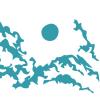
Bonseki Salt Art
Source Institutions
In this activity learners will be creating art using a traditional Japanese art style.
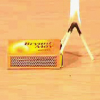
Magical Match
Source Institutions
In this demonstration, learners will be "wowed" as three matches burn to form a triangular pyramid shape and "magically" rise off the table.
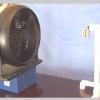
Wind Turbine Blade Design
Source Institutions
In this activity, learners design, build and test wind turbines. Learners go through the design process and use the scientific method to test important blade variables.
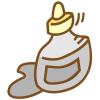
Gluep
Source Institutions
In this chemistry activity, learners make a slimy non-Newtonian fluid called "Gluep." Use this activity to introduce learners to polymers and viscosity.
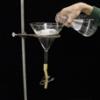
Free-living and Plant-Parasitic Nematodes (Roundworms)
Source Institutions
This lesson introduces learners to the world of nematodes (roundworms).
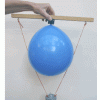
Springs and Stomachs
Source Institutions
In this demonstration, learners investigate mass, gravity, and acceleration by dropping a wooden bar with a balloon attached to its underside, a mass suspended from it by rubber bands, and a sharp-poi
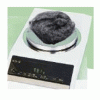
Fast Rusting
Source Institutions
In this activity, learners conduct an experiment to find out if steel wool will weigh more or less when it is burned. Learners will explore the effects of oxidation and rusting on the steel wool.
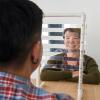
Your Father's Nose
Source Institutions
In this fun optics activity, learners explore principles of light, reflection (mirrors), and perception. Learners work in pairs and sit on opposite sides of a "two-way" mirror.
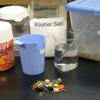
Separating a Mixture
Source Institutions
This activity was designed for blind learners, but all types of learners can explore means of physically separating a mixture using dissolving, filtration, and evaporation.
Hot and Cold: Endothermic and Exothermic Reactions
Source Institutions
Visitors mix urea with water in one flask and mix calcium chloride with water in another flask. They observe that the urea flask gets cold and the calcium chloride flask gets hot.
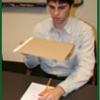
Mirror-Tracing
Source Institutions
This mirror-tracing activity related to proprioception is a visual and motor test that involves learning a new motor skill.
Up, Up and Away with Bottles
Source Institutions
In this activity, learners make water rockets to explore Newton's Third Law of Motion. Learners make the rockets out of plastic bottles and use a bicycle pump to pump them with air.
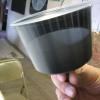
Mini Zoetrope
Source Institutions
In this activity (posted on March 27, 2011), learners follow the steps to construct a mini zoetrope, a device that produces an illusion of action from a rapid succession of static pictures.
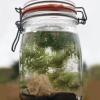
Tabletop Biosphere
Source Institutions
In this activity, learners create a sealed, mini ecosystem that supplies freshwater shrimp with food, oxygen, and waste processing for at least three months.
Yeast Balloons
Source Institutions
Visitors observe a bottle with a balloon attached around the mouth. The bottle contains a solution of yeast, sugar, and water.
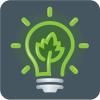
Making Connections: What You Can Do To Help Stop Global Climate Change
Source Institutions
In this cooperative learning activity, learners visit ten stations and are challenged to think critically about various conservation questions and issues.

Black Magic (Color Chromatography)
Source Institutions
With a coffee filter, a black marker, and a cup of water, discover the secret colors hidden in black ink.
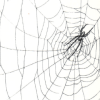
Web It!
Source Institutions
In this outdoor activity, learners investigate spider webs and feeding behavior, particularly how spiders trap food in their sticky silk webs while not getting stuck themselves.
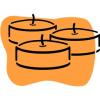
Floating Candles
Source Institutions
In this chemistry activity, learners observe a combustion reaction and deduce the components necessary for the reaction to occur.
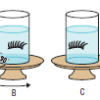
Visualizing How the Vestibular System Works
Source Institutions
In this activity (page 59 of the PDF), learners spin and observe false eyelashes in jars of water (prepared at least 1 day ahead of time) to investigate the effects of different types of motion on the
